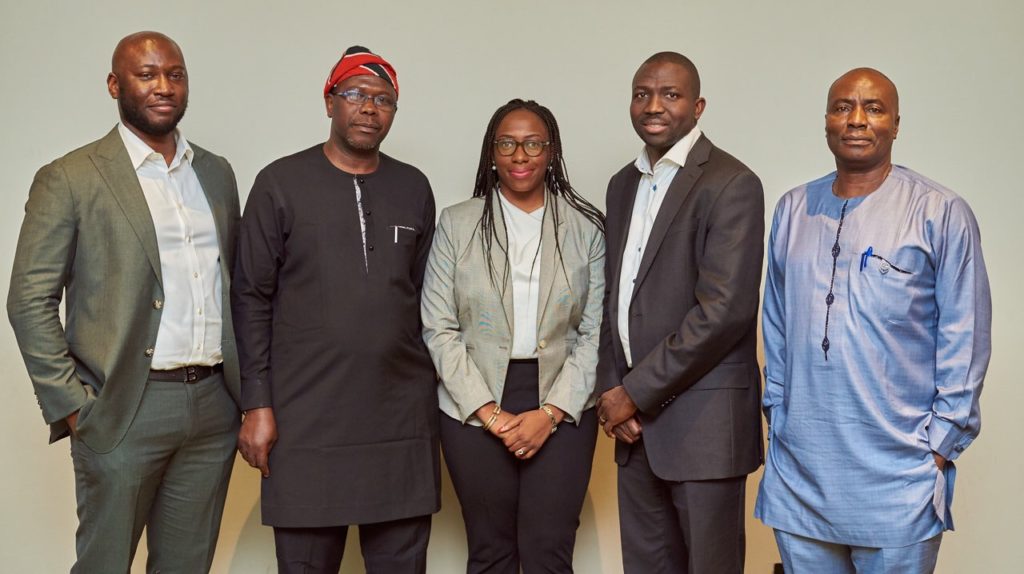New study comes as 54gene and leading Nigerian geneticists collaborate to launch a new consortium.
Lagos, Nigeria: 54gene, the African genomics research, services, and development company, has announced the launch of the African Centre for Translational Genomics (ACTG), an initiative established to facilitate translational genomics research by African scientists.
The establishment will also re-invest in the health ecosystem by empowering the next generation of African genomic scientists through the provision and implementation of grants, fellowships, internships and training for medical researchers, trainees and students. Additionally, the initiative will facilitate precision medicine across continental Africa.
As a first concerted effort towards achieving its mandate, the ACTG will be funding its first study under the Non-Communicable Diseases – Genetic Heritage Study (NCD-GHS) Consortium. The consortium will see over 100,000 Nigerians participate in the eponymous study which will seek to understand the genetic basis of the highly prevalent non-Communicable Diseases (NCDs) in Nigeria such as cancers, diabetes, Alzheimer’s, chronic kidney and sickle cell disease, among others.
The consortium will have a steering committee co-led by the Director-General of Nigeria Institute of Medical Research [NIMR], Prof. Babatunde Lawal Salako, the Director of National Biotechnology Development Agency’s Centre for Genomics Research and Innovation [NABDA-CGRI], Prof Oyekanmi Nash, the CEO of 54gene, Dr Abasi Ene-Obong, Dr Segun Fatumo, Assistant Professor, London School of Hygiene and Tropical Medicine [LSHTM] and Dr Omolola Salako, Consultant Oncologist, College of Medicine, University of Lagos [CMUL].

PhotoCredit – 54Gene
Speaking on the consortium launch, Dr. Abasi Ene-Obong, said, “In continuation with our belief at 54gene that genetic research in Africa should be ethical and beneficial to the communities we serve, and that African scientists be at the forefront of new drug discoveries that benefit Africans and the world at large; we have set up the ACTG to harness translational genetic research across Africa.
The NCD-GHS study is our pilot effort under the ACTG that has the potential to rewrite the playbook of genomics research, where African scientists will be placed at the forefront of new drug discoveries for conditions that affect the health of not only Nigerians, but greater Africa and the world. “
“Our collaboration with scientists at NIMR and NABDA-CGRI, as a consortium, is a highly welcome initiative which we believe will be a rewarding and mutually beneficial experience for all parties. For 54gene specifically, the opportunity for us to contribute to a broader national agenda for genomics research is both inspiring and humbling, and we are committed to ensuring its success.”
Joining Dr Ene-Obong at the launch of the NCD-GHS Consortium included many of Nigeria’s most prominent geneticists and medical research professionals;
Professor. Babatunde Lawal Salako, Director General of the Nigeria Institute of Medical Research (NIMR), added, “Through this consortium, we aim to engage senior scientists that have made their mark in the field of cardiometabolic research in teaching hospitals across the country to ensure representativeness and quality. We will also work with senior scientists to not only use the data from the proposed study to answer pertinent questions about the burden of cardiometabolic diseases in Nigeria as proposed in the study objectives but also to capacitate them to conduct secondary research using already available data.”
Professor Oyekanmi Nash, Director, Genetics, Genomics, and Bioinformatics at the National Biotechnology Development Agency (NABDA) noted, “NABDA-CGRI is proud to be a key partner in this consortium together with NIMR. We believe that through this consortium, we will not only be able to define the genomic epidemiology of non-communicable diseases in Nigeria, but we will also find results that would enable Nigerians to lead innovation to improve prevention, care, and management of non-communicable diseases.
It is also an opportunity for NABDA-CGRI to utilize the pool of bioinformaticians it has trained over the years to build models and algorithms that would allow for robust utilization of the genomics data expected from this initiative to support innovation.”
Dr. Segun Fatumo, Assistant Professor at the London School of Hygiene and Tropical Medicine (LSHTM) and Senior Scientist at the MRC/UVRI, added, “Genomic medicine remains an important tool to provide some useful insights into the high burden of non-communicable disease (NCDs) in Africa. I think this is our opportunity to reliably determine the distribution and prevalence of a range of NCDs in Nigeria.
This study will allow us to assess the burden, spectrum and genetic determinants of NCDs. This study would foster the development of new treatments that will benefit people living in Africa as well as people of African descent around the world.
Our findings may inform public health strategies and programs in Nigeria and other African countries. Partnerships of this nature could really change the future of healthcare in Africa and other global populations.”
Dr Omolola Salako, Lecturer at College of Medicine, University of Lagos, added, “The consortium will provide an enabling environment and resource for Nigeria based scientists to develop their research capacity and skillset; as well as contribute to the ongoing efforts to improve genomics training and research in the country”
Dr Abasi Ene-Obong concluded, “Consent is a prerequisite for participation in the study and we remain resolute in ensuring international research standards are maintained and exercised – ensuring best practice across the continent is implemented.”
In conclusion, the consortium leaders cited the coming together of leading scientists as a welcome development for leveraging talent from across Nigeria to promote genomics research scholarship.
The genetic scientists and researchers present welcomed the initiative of the consortium and highlighted the primary intention of the body as one poised for the betterment of the health of Africans from every corner of the continent.
































